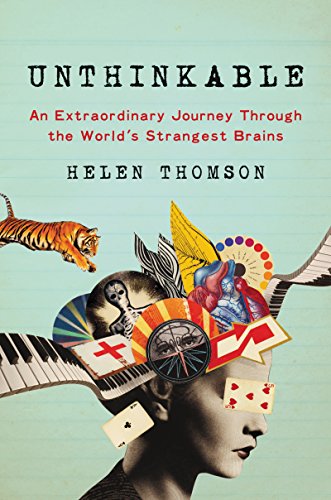Highlighted titles from the newest additions to the HSL Collection: You can find these books on the shelf, to the right, when entering the library. A full list of new titles can be found online.
Five ways of doing qualitative analysis, by Frederick Wertz, et al.
“This unique text provides a broad introduction to qualitative analysis together with concrete demonstrations and comparisons of five major approaches. Leading scholars apply their respective analytic lenses to a narrative account and interview featuring “Teresa,” a young opera singer who experienced a career-changing illness. The resulting analyses vividly exemplify what each approach looks like in action. The researchers then probe the similarities and differences among their approaches; their distinctive purposes and strengths; the role, style, and subjectivity of the individual researcher; and the scientific and ethical complexities of conducting qualitative research. Also included are Teresa’s responses to each analysis of her experience. A narrative account from another research participant, “Gail,” can be used by readers to practice the kinds of analysis explored in the book.” — R2 Digital Books |
Online |
Dreamland: the true tale of America’s opiate epidemic, by Sam Quinones.
“Includes a new afterword by the author. “With a great reporter’s narrative skill and the storytelling ability of a novelist, acclaimed journalist Sam Quinones weaves together two tales of capitalism catastrophically run amok. The unfettered prescribing of pain medications during the 1990s reached its peak in Purdue Pharma’s campaign to market OxyContin, its new, expensive–extremely addictive–miracle painkiller. Meanwhile, a massive influx of black tar heroin–cheap, potent, and originating from one small county on Mexico’s west coast, independent of any drug cartel–assaulted small towns and midsize cities across the country, driven by a brilliant, almost unbeatable marketing and distribution system. Together these phenomena continue to lay waste to communities from Tennessee to Oregon, Indiana to New Mexico.”–Back cover. |
WM284 Q7d 2015 |
The Prefrontal Cortex, by Joaquin M. Fuster.“Provides users with a thoroughly updated version of this comprehensive work that has historically served as the classic reference on this part of the brain. The book offers a unifying, interdisciplinary perspective that is lacking in other volumes written about the frontal lobes, and is, once again, written by the award-winning author who discovered ‘memory cells,’ the physiological substrate of working memory. The fifth edition constitutes a comprehensive update, including all the major advances made on the physiology and cognitive neuroscience of the region since publication in 2008. All chapters have been fully revised, and the overview of prefrontal functions now interprets experimental data within the theoretical framework of the new paradigm of cortical structure and dynamics (the Cognit Paradigm), addressing the accompanying social, economic, and cultural implications.Provides a distinctly interdisciplinary view of the prefrontal cortex, covering all major methodologies, from comparative anatomy to modern imaging. Unique analysis and synthesis of a large body of basic and clinical data on the subject (more than 2000 references)Written by an award-winning author who discovered ‘memory cells,’ the physiological substrate of working memory. Synthesizes evidence that the prefrontal cortex constitutes a complex pre-adaptive system. Incorporates emerging study of the role of the frontal lobes in social, economic, and cultural adaptation” — EBSCOHost. |
Online |
The healing of America: a global quest for better, cheaper, and fairer health care, by T. R. Reid.
|
Online |
Unthinkable: an extraordinary journey through the world’s strangest brains, by Helen Thomson.
“Our brains are more extraordinary–and far stranger–than we think. We take it for granted that we can remember, feel emotion, navigate, empathize, and understand the world around us, but how would our lives change if these abilities were dramatically enhanced–or disappeared overnight? Helen Thomson has spent years traveling the world, tracking down incredibly rare brain disorders. In Unthinkable she tells the stories of nine extraordinary people she encountered along the way. From the man who thinks he’s a tiger, to the doctor who feels the pain of others just by looking at them, to a woman who hears music that’s not there, their experiences illustrate how the brain can shape our lives in unexpected and, in some cases, brilliant and alarming ways. Story by remarkable story, Unthinkable takes us on an unforgettable journey through the human brain. Discover how to forge memories that never disappear, how to grow an alien limb, and how to make better decisions. Learn how to hallucinate, and how to make yourself happier in a split second. Find out how to avoid getting lost, how to see more of your reality, even how exactly you can confirm you are alive. Think the unthinkable.” — Book Jacket |
WL348 T472u 2018 |



![The Healing of America: A Global Quest for Better, Cheaper, and Fairer Health Care by [Reid, T. R.]](https://images-na.ssl-images-amazon.com/images/I/51odHgoQs0L._SY346_.jpg)
